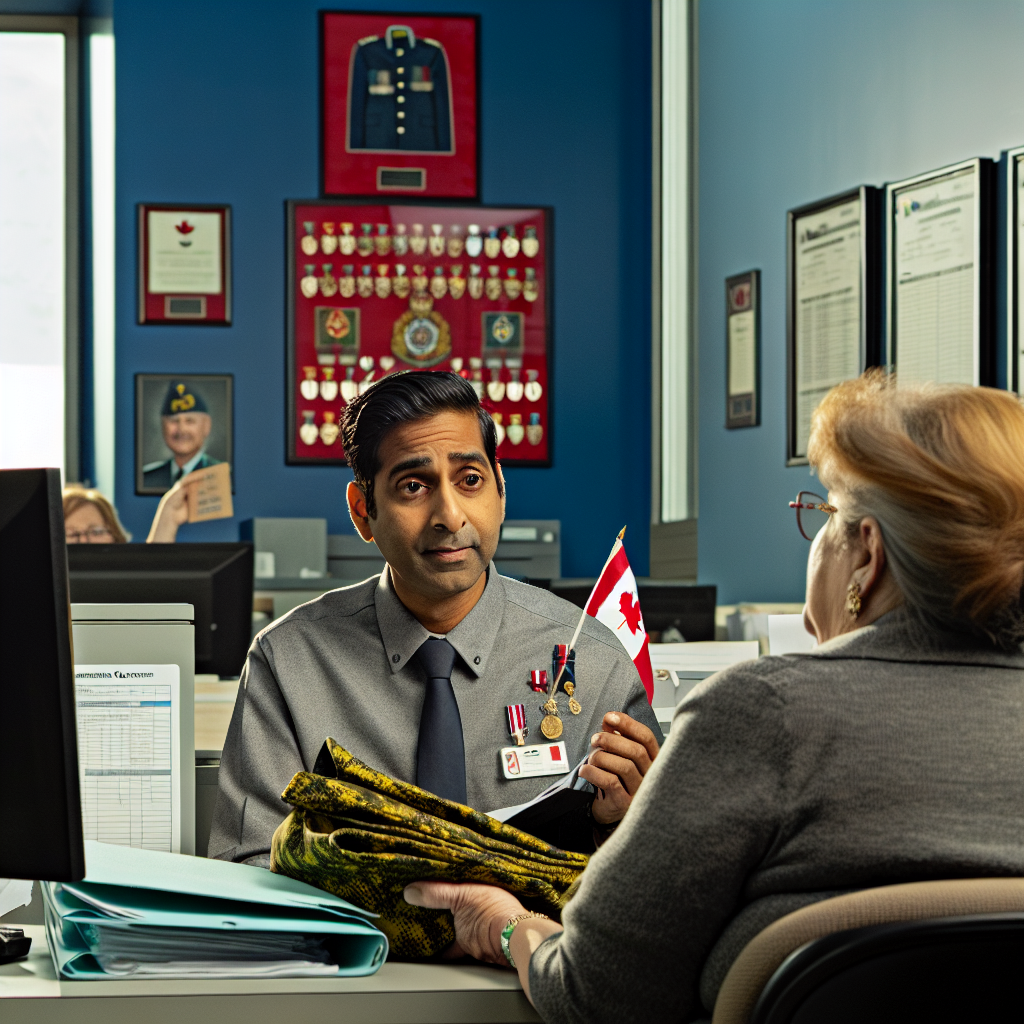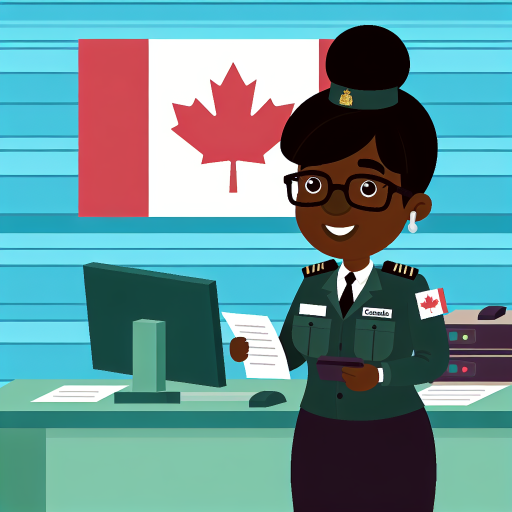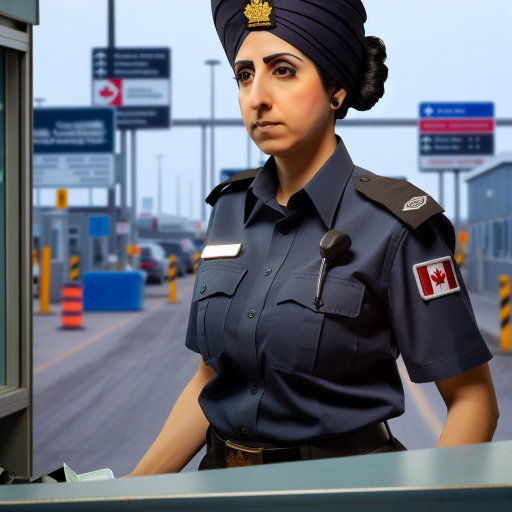Assessing and Evaluating the Needs of Veterans
Understanding Eligibility Criteria
Veterans Affairs officers assess the eligibility of veterans for various benefits.
They review individual service records to determine qualifying criteria.
Additionally, they evaluate life circumstances that may affect eligibility.
Conducting Needs Assessments
Officers conduct personalized assessments for each veteran.
They gather information on health, financial status, and family situation.
This process helps in identifying specific needs and challenges.
Providing Guidance and Resources
Veterans Affairs officers offer guidance on available benefits.
They explain the application process for VA services comprehensively.
Furthermore, they connect veterans with local resources for support.
Monitoring and Follow-Up
After evaluating needs, officers monitor the impact of services provided.
They schedule follow-up appointments to reassess ongoing requirements.
This ensures that veterans receive continuous support as needed.
Key Responsibilities of a Veterans Affairs Officer
Providing Guidance and Support
Veterans Affairs Officers play a crucial role in supporting veterans.
They assist veterans in navigating complex government programs.
Furthermore, they ensure veterans access necessary resources.
Understanding Government Programs
Officers must familiarize themselves with various government programs.
Programs include healthcare, education, and housing assistance.
They keep updated on any changes to these programs.
This knowledge empowers them to provide accurate guidance.
Facilitating Access to Resources
Veterans Officers help veterans access vital resources.
They connect veterans with local services and support groups.
Additionally, they guide veterans through application processes.
This support is essential to ensure their well-being.
Advocating for Veterans’ Rights
Advocacy is a vital part of the role of a Veterans Affairs Officer.
They strive to protect and uphold veterans’ rights.
Unlock Your Career Potential
Visualize a clear path to success with our tailored Career Consulting service. Personalized insights in just 1-3 days.
Get StartedMoreover, they work with organizations to promote policy changes.
Such efforts help improve the quality of life for veterans.
Coordinating and Collaborating with Other Agencies and Organizations Focused on Veteran Services
Establishing Partnerships
Veterans Affairs Officers actively seek partnerships with local organizations.
This includes non-profits that focus on veterans’ issues.
Collaborating with government agencies enhances service delivery.
These partnerships amplify the reach of available resources.
Building trust with these organizations fosters better communication.
Participating in Interagency Meetings
Attending interagency meetings allows for the sharing of information.
These meetings often highlight best practices from various agencies.
Feedback from these sessions improves the coordination of services.
Moreover, regular communication helps align efforts toward common goals.
Implementing Joint Programs
Collaborative programs address the needs of veterans more effectively.
These programs might include job training and mental health services.
Joint initiatives often secure additional funding and resources.
Sharing expertise enhances the skill set of all involved organizations.
Advocating for Policy Changes
Veterans Affairs Officers play a critical role in advocacy.
They raise awareness about the challenges veterans face.
Collaboration helps to influence policy changes at local and national levels.
By working together, stakeholders can present a unified voice.
Leveraging Data and Resources
Data sharing among agencies enhances program effectiveness.
It allows for informed decision-making based on real evidence.
Additionally, pooling resources maximizes the impact on veteran services.
Utilizing technology helps streamline communication between partners.
Explore Further: Ombudsmen and Their Role in Educational Institutions
Maintaining Accurate and Detailed Records of Veterans’ Cases and Interactions
Importance of Record Keeping
Accurate records are essential for effective case management.
They ensure that all veterans receive the services they need.
Moreover, records foster accountability among Veterans Affairs officers.
Types of Records to Maintain
Officers must keep case files for every veteran they assist.
These files typically include personal information, service history, and financial data.
Additionally, officers should document all interactions with veterans.
This includes phone calls, meetings, and correspondence.
Updating Records Regularly
It is critical to update records whenever new information arises.
Timely updates help prevent misunderstandings and errors.
Furthermore, officers should review records periodically for accuracy.
Utilizing Technology
Modern technology can streamline record-keeping processes.
Systems such as databases allow for efficient data entry and retrieval.
Using electronic records also enhances data security.
Training and Compliance
Officers should undergo regular training on record-keeping protocols.
Compliance with federal and state regulations is vital.
Awareness of privacy laws protects veterans’ sensitive information.
Challenges in Record Management
Officers often face challenges in tracking historical data.
Lack of resources may hinder effective record-keeping efforts.
Additionally, maintaining confidentiality is a continuous challenge.
Collaboration with Other Departments
Effective record management often requires inter-departmental collaboration.
Cooperation with healthcare providers can enhance the data collected.
Moreover, partnerships with legal entities ensure comprehensive care.
Delve into the Subject: Networking for Aspiring Canadian Correctional Officers
Conducting Outreach Programs to Educate Veterans About Available Benefits and Support
Identifying Target Audiences
First, the outreach process begins with identifying target veteran populations.
This includes focusing on different demographics, such as age and service history.
Next, officers reach out to community organizations and veteran groups.
Through this collaboration, they effectively broaden their network and impact.
Developing Educational Materials
Creating informative content is vital for effective outreach.
Officers develop brochures that outline benefits clearly and concisely.
Moreover, digital resources, such as videos and webinars, enhance understanding.
These materials must be accessible and tailored to diverse learning styles.
Hosting Outreach Events
Organizing events is essential to engage directly with veterans.
These events may include workshops, seminars, and information sessions.
During these gatherings, officers present vital information about benefits.
Additionally, they offer opportunities for one-on-one consultations.
Utilizing Technology for Outreach
In today’s digital age, technology plays a crucial role in outreach.
Veterans Affairs officers leverage social media platforms to disseminate information.
This approach allows them to reach a wider audience efficiently.
Furthermore, maintaining a user-friendly website helps veterans access resources swiftly.
Monitoring and Evaluation
Finally, assessing the effectiveness of outreach programs is critical.
Officers utilize surveys and feedback forms to gather veterans’ opinions.
Based on this information, they can refine their strategies and materials.
This continuous improvement ensures that veterans receive the support they need.
Delve into the Subject: Personal Development for Aspiring Correctional Officers

Advocating for Veterans’ Rights
Enhancing Awareness
Veterans Affairs officers actively raise awareness of veterans’ issues.
They participate in community outreach programs regularly.
These initiatives connect veterans with essential services.
Additionally, they promote understanding of veterans’ needs.
Through engagement, they build a supportive community.
Engaging with Policymakers
Veterans Affairs officers meet with lawmakers frequently.
They discuss legislation affecting veterans’ benefits and services.
Furthermore, they advocate for improved policies.
By presenting veterans’ concerns, they influence decision-making.
This engagement ensures that veterans’ voices are prioritized.
Supporting Veterans’ Voices
Officers facilitate forums where veterans can express their needs.
They encourage open dialogue between veterans and stakeholders.
Moreover, they gather feedback to inform advocacy efforts.
This process helps shape responsive policies.
Thus, they empower veterans to influence outcomes.
Building Partnerships
Beyond advocacy, officers collaborate with various organizations.
They connect with nonprofits focused on veteran support.
These partnerships enhance resource availability for veterans.
Consequently, they expand the network of assistance available.
Through teamwork, they create holistic support systems.
Learn More: Understanding the Role of Ombudsmen in Healthcare
Facilitating Access to Mental Health and Rehabilitation Services for Veterans in Need
Understanding the Role of Veterans Affairs Officers
Veterans Affairs Officers serve as critical links for veterans seeking support.
They guide veterans through the complexities of available services.
Moreover, they ensure veterans understand their rights and benefits.
Promoting Mental Health Awareness
Veterans Affairs Officers actively promote mental health resources.
They provide information about counseling and PTSD treatment options.
Additionally, they encourage veterans to seek help without stigma.
Coordinating Rehabilitation Services
These officers coordinate rehabilitation services for injured veterans.
They connect veterans with physical therapy and occupational therapy providers.
Furthermore, they assist with vocational rehabilitation programs.
Building Relationships with Community Resources
Veterans Affairs Officers foster relationships with local organizations.
These connections help provide comprehensive support for veterans.
For example, they collaborate with mental health clinics and service groups.
Implementing Outreach Programs
Outreach programs are essential for reaching veterans in need.
Veterans Affairs Officers organize community events to raise awareness.
They also distribute educational materials about mental health services.
Advocating for Policy Changes
Veterans Affairs Officers advocate for improved services and policies.
They work to influence local and national legislation.
Additionally, they represent veterans’ needs in discussions with policymakers.
Monitoring and Reporting on Policy Changes Impacting Veterans’ Benefits and Services
Importance of Staying Informed
A Veterans Affairs Officer plays a crucial role in staying updated on policy changes.
They ensure veterans receive accurate and timely information regarding their benefits.
Moreover, this knowledge allows officers to advocate effectively for veterans’ needs.
Tracking Legislation and Regulations
Monitoring legislation is essential to understand its effects on veterans.
Officers should regularly review bills and regulations affecting veterans’ benefits.
For example, proposed changes may alter eligibility for certain services.
Analyzing Policy Impact
Officers must analyze how policy changes impact veterans on various levels.
This includes assessing financial, health, and social implications.
Such analysis is vital for effective communication with veterans and stakeholders.
Reporting Findings
Once analysis is complete, officers report findings to relevant authorities.
This ensures decision-makers understand the potential consequences of changes.
Consequently, informed decisions can be made to protect veterans’ interests.
Communicating Changes to Veterans
Clear communication is vital when informing veterans about policy changes.
Officers should utilize various platforms to reach diverse veteran populations.
Additionally, they should provide accessible information regarding new benefits or eligibility criteria.
Collaboration with Stakeholders
Effective communication also involves collaborating with other organizations.
Veterans Affairs Officers should work with advocacy groups and agencies.
This collaboration can amplify the messaging and support for veterans.
Additional Resources
VISN 19 – Veterans Integrated Service Networks
History of Veterans Day – U.S. Department of Veterans Affairs




